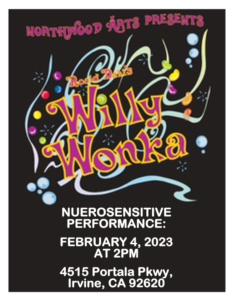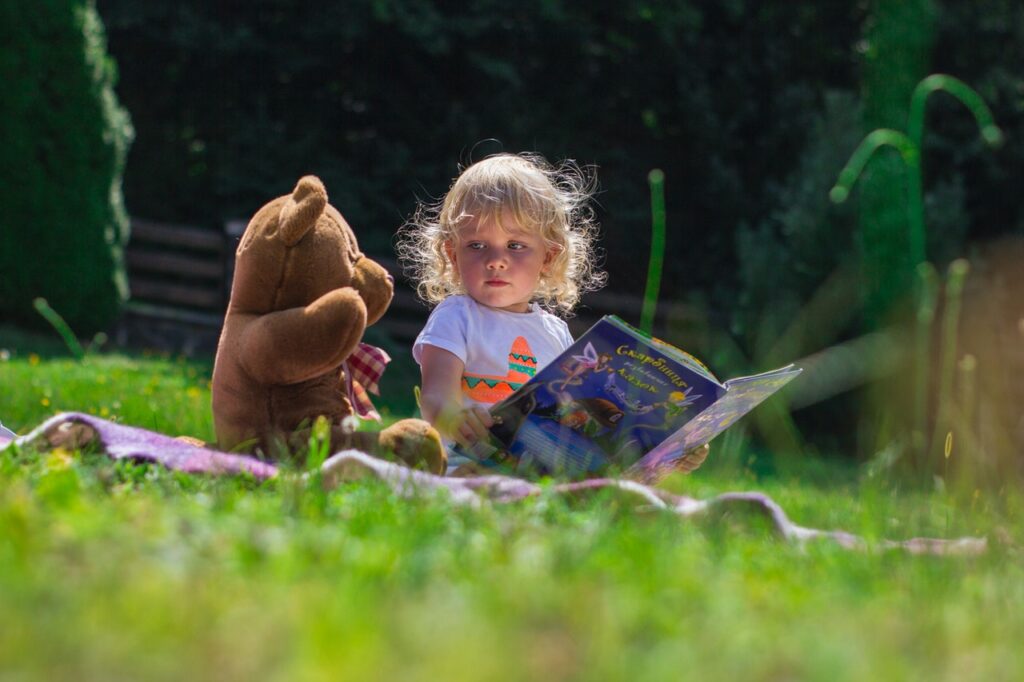 Orange County Grandparents and their families are invited to be our guests at Willy Wonka and the Chocolate Factory at Northwood High School in Irvine CA
Orange County Grandparents and their families are invited to be our guests at Willy Wonka and the Chocolate Factory at Northwood High School in Irvine CA
We welcome pre-registered parents, their children with autism and their siblings to attend Northwood High School’s upcoming production of Willy Wonka and the Chocolate Factory on Saturday, February 4, 2023 at 2:00 pm.
FAN has reserved seats in the mezzanine section for our guests.
Please arrive at 1:30 pm to check in at our table in front of the theater and to be seated. The performance starts at 2:00 pm and ends at approximately 5:30 pm. There will be a 15 minute intermission when you are welcome to pick up free refreshments at our table.
The modern, comfortable theatre is conveniently located directly in front of the parking lot. Northwood’s productions feature very talented casts, colorful costumes and an outstanding orchestra. Previous productions have been professional in every aspect. After the show, the actors come to greet our guests and will take photos with them if they are asked.
We look forward to sharing another great afternoon with you!
Northwood High School is located at:
4515 Portola Parkway
Irvine, CA 92620
Click HERE for directions.
 Travel and Activity Suggestions
Travel and Activity Suggestions


 You can provide emotional support for the parents of your grandchild with autism. Most families find that facing this challenge together, with acceptance and optimism, brings the family closer. Many parents of kids with autism say that getting verbal approval and support from their own parents means a lot.
You can provide emotional support for the parents of your grandchild with autism. Most families find that facing this challenge together, with acceptance and optimism, brings the family closer. Many parents of kids with autism say that getting verbal approval and support from their own parents means a lot.
